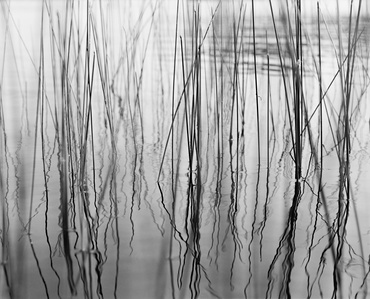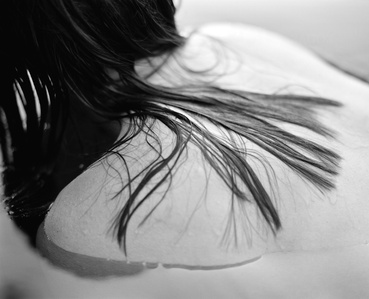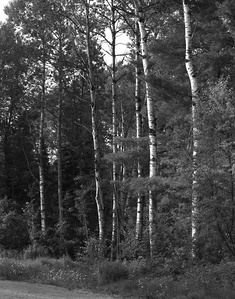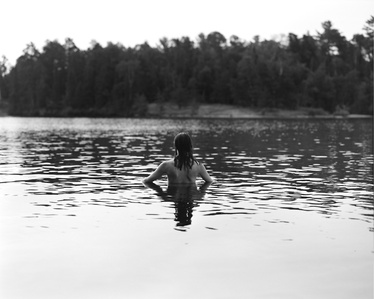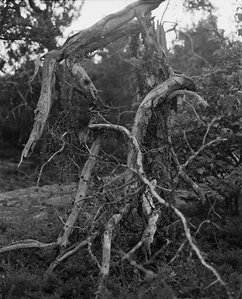
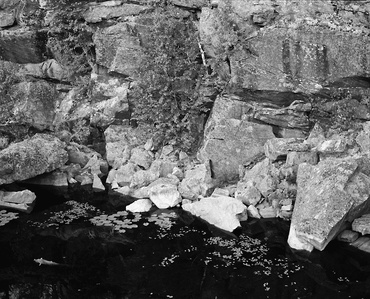
West Arm
West Arm is a new body of lens-based work by Toronto photographer Sarah Bodri. Inspired by the unfamiliar, the sublime, and personal reflection, this series depicts the vast terrain of the West Arm of Lake Nipissing, in particular Waubamac Lake.
Recorded from a canoe at dawn or in the lake at dusk, these photographs remind us that the presence of nature around us, or that ours within it can be transcendent. Dimly lit and silent scenes create visceral landscapes that aim to rekindle our connection to the natural world and to ourselves. Black and white images articulate Bodri’s experience of acceptance, patience, and stillness in the wake of a traumatic event in her life.
“This trip was an escape from the city and a return to myself. Finally able to disconnect from city life and screens, it allowed me to recall and honour particularly weighty feelings which I unearthed over last winter in the wake of great loss, the passing of a dear friend. I was inspired to listen to the land; instead it told me to listen to myself. I saw myself in the rocks and vice versa: the big heavy one in the middle of the frame, that's in the middle of me, too.
The sense of peace I found by the water was starkly contrasted to frenzied experience of making the images: the whole process was very intuitive and immersive, in part because of the pressure of fading light, steep Shield, and threat of bugs. At times shooting felt dangerous, but in those moments I was infinitely present. Despite all of that, the ecology of West Arm inspired deep relaxation and quiet. A quiet mind: where does that happen anymore?”
As seen in the artist's previous series REFLET and Vitrée, Bodri employs reflection to complicate things for the viewer. Dark, glassy waters implore us to re-evaluate where the subject is actually positioned; visual uncertainty asks us to question what is real and what is reflected. West Arm is a slight digression from her past work though, as it focuses primarily on the land rather than the individual. Here the human form is both a quiet interruption and an integral part of the landscape, embodying the stillness of that which surrounds it.
The artist would like to thank Josée Guimond and her family who hold and care greatly for property on the West Arm of Lake Nipissing where this body of work was created. Lake Nipissing (from the name N'Biising, meaning "Little Water") is located in St. Charles, near the Greater City of Sudbury. Although colonial contact was made in 1615, people of the N'Biising First Nation (a member of Anishinabe Nation) originally inhabited this land and still do. As a third generation settler, Bodri extends gratitude to the resourceful, storied and skillful people who knew this territory long before colonization, and acknowledges her responsibilities as an ally who supports Indigenous sovereignty.





